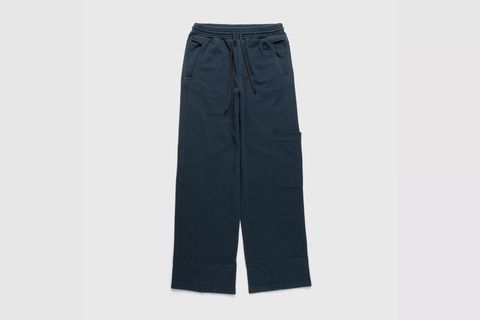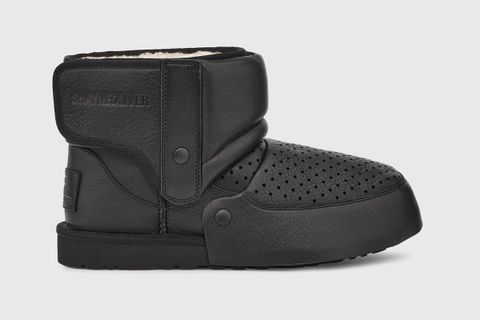Unpacking TikTok's Mielle Hair Oil Controversy
This story was published on January 3, 2023 and updated on January 12, 2023
A new TikTok trend is reigniting discussion of the ways in which white creators all too often appropriate beauty practices from Black and brown communities.
On December 28, Alix Earle — a 22-year-old influencer with a following of over 3 million — posted a video listing her top Amazon purchases of 2022. Among her beauty, wellness, and tech finds is Mielle Organics' Rosemary Mint Scalp & Hair Strengthening Oil, a product typically used by those with textured and curly hair. (Mielle, a Black-owned brand, specializes in natural hair products.)
"I've only been using this for a little over a month and I've already seen tremendous hair growth," Earle said of the oil.
In what some have dubbed the "Alix Earle Effect," a slew of (mostly white) creators have taken to TikTok to test out the product. While the buzz surrounding the oil might seem like a win for Mielle, its newfound demand among Earle's predominately white following has consequences for the Black and brown customers that Mielle's products are made for.
To understand these consequences, it's crucial to acknowledge the importance of hair oiling in Black and South Asian hair care. Because curls, coils, and kinks make it more difficult for the scalp's natural oils to moisturize the hair shaft, natural hair is often dryer than straight hair. Hair oils like Mielle's help prevent breakage and frizz resulting from this dryness.
Hair oiling is also practiced in India, where the ancient Ayurvedic technique is used to soften and strengthen locks.
White creators are framing Mielle's hair oil as a novel discovery, but the product (and hair oiling in general) certainly isn't new to Black and brown folks. And while it's great that a Black-owned company like Mielle is enjoying a spike in searches, some fear the brand will increase prices and reformulate as a result of its newfound popularity among white customers.
These fears aren't unfounded — in 2015, natural haircare brand SheaMoisture reformulated one of its most popular products to better suit white hair. On January 11, Procter and Gamble's beauty division — a massive conglomerate that owns Head & Shoulders, Old Spice, and Olay — announced it was acquiring Mielle, casting the future of the brand in further uncertainty.
Already, Mielle is reportedly selling out at online and brick-and-mortar stockists, a turn of events that some are attributing to Earle's video and influence. It's easy to spot the injustice in white customers raiding the natural hair care aisle, an already underserved category, thus preventing Black customers from buying one of the few brands made for and by them.
Adding insult to injury, creators are misusing Mielle's oil after discovering that it's — surprise! — not made for non-textured hair. As exemplified by several videos, some are diluting the product with water or applying it to the scalp and shampooing it out immediately after, two things that Mielle's instructions specify not to do.
The Mielle situation is hardly the first instance of white creators appropriating beauty techniques from Black and brown communities. TikTok's "Clean Girl Aesthetic," which often referenced Hailey Bieber as inspiration, revolved around slicked-back buns, brown lip-liner, and lip gloss — a look that has existed in Black and Latin culture for decades.
So, where does this leave us? Should white and non-Black creators forgo hair oil and lip gloss completely?
It's less about barring groups of people from using certain products and more about thinking critically about the significance of said products. In the case of Mielle, acknowledge the importance of hair oiling in Black hair care; acknowledge the abundance of products (oils and moisturizers included) made for white and non-textured hair.
By snatching up Mielle's oil, white customers reduce Black customers' access to an already limited selection of products formulated specifically for natural hair.
As @kita.io put it: "You walk past the four or five hair care aisles dedicated to you in a store and walk down the one ethnic hair care oil to pull out an oil you saw on TikTok... what made you think that walking through an ethnic hair care aisle to buy a $20 oil that was not made for you was going to work? The product doesn't work for you, but you keep selling the oil out so that the people who actually need it can't get to the oil."


